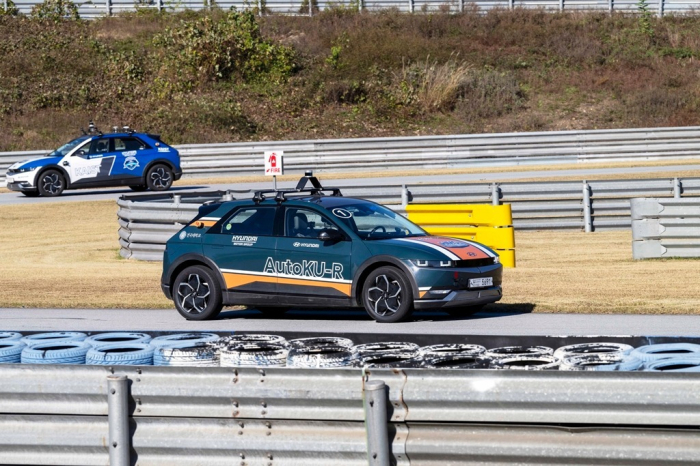Hyundai Motor Co. and Kia Corp., South Korea’s two largest automakers, have joined hands with the nation's top national research university to develop a next-generation autonomous driving sensor. The move comes despite recent setbacks in the driverless vehicle industry amid mounting losses and delays in commercial services.
Hyundai and Kia said on Wednesday they established a joint research center with KAIST, the Korea Advanced Institute of Science and Technology, to focus on on-chip light detection and ranging (LiDAR).
The joint lab, with 30 engineers from Hyundai, Kia and KAIST’s School of Electrical Engineering aims to develop technology for small, high-performance on-chip sensor manufacturing and next-generation signal detection.
“The cooperation is expected to advance the era of fully autonomous driving,” Hyundai and Kia, the automaking units of Hyundai Motor Group, said in a joint statement.
The move comes
even as the global self-driving industry is losing steam in the wake of cumulative losses and delays in commercial service launches. For example, US-based General Motor Co.’s autonomous driving unit Cruise LLC has suspended its driverless robotaxi service after facing two federal probes over a crash in San Francisco last year, media reported.
PRICE COMPETITIVENESSHyundai, Kia and KAIST aim to develop an on-chip sensor based on semiconductor technology, which allows the automakers to shrink LiDAR. The technology is expected to enable LiDAR’s mass production, improving price competitiveness, Hyundai and Kia said.
The next-generation signal detection technology utilizes frequency modulated continuous wave (FMCW)-emitting light whose frequency changes over time. It also entails estimating the difference in frequency of the returning light to measure distance, according to the carmakers.
The technology usually reduces more signal noise than existing LiDAR while removing interference from outside light sources such as sunlight, the companies said.
Hyundai and Kia are set to oversee the joint lab’s operation with Hyundai NGV, the group’s industry-academic cooperation unit, while providing technical support to improve research capabilities.
KAIST will handle project details, including the development of devices for small on-chip LiDAR based on silicon photonics; the production of high-speed, high-output driving integrated circuits for LiDAR; and the optimal design of LiDAR systems.
Write to Jae-Fu Kim at
hu@hankyung.com Jongwoo Cheon edited this article.



